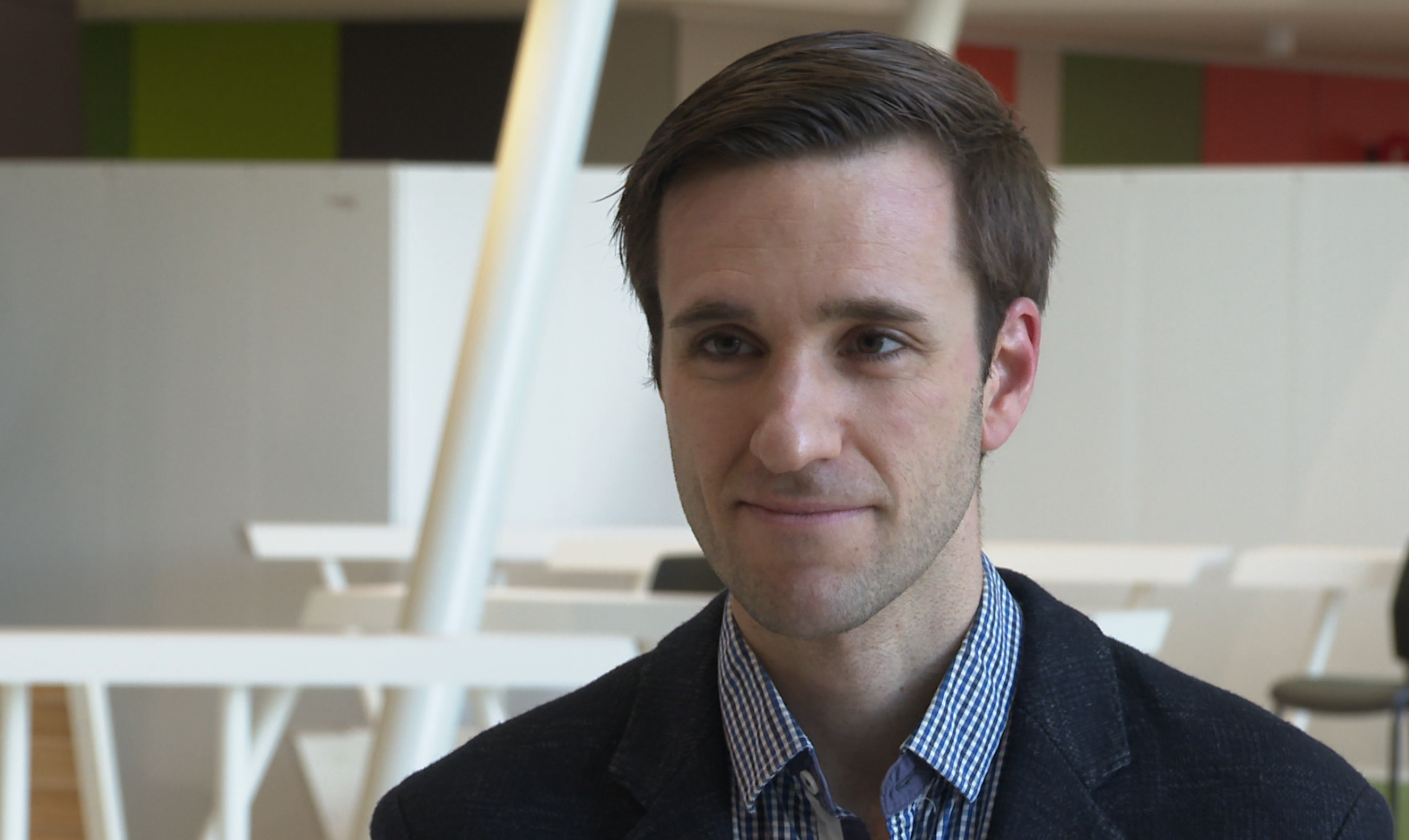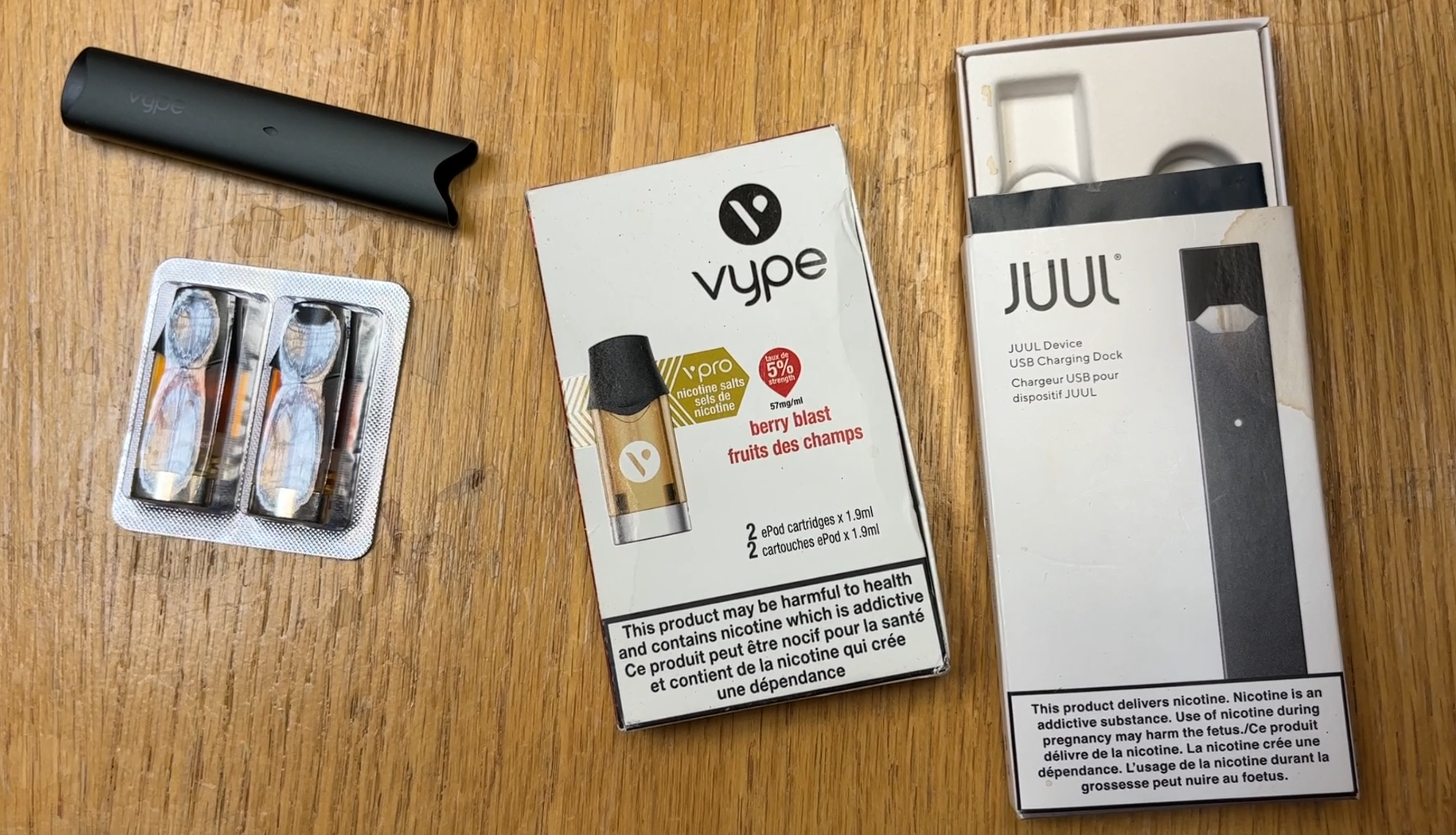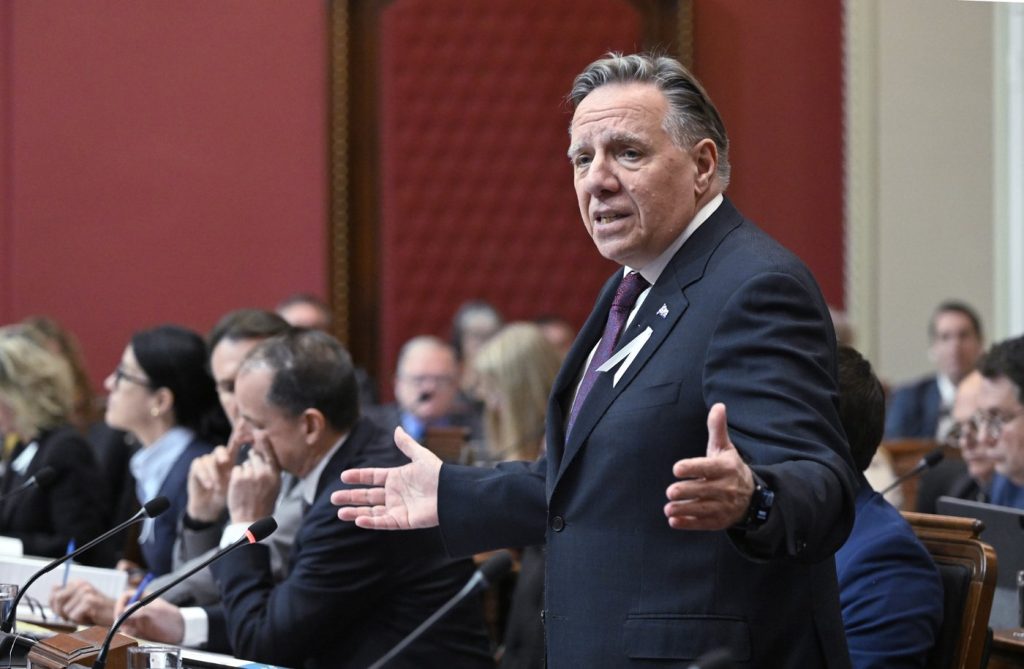Quebec experts warn of ‘dramatic increase’ in youth vaping – especially among 15 to 17-year-olds
Posted January 10, 2023 2:24 pm.
Last Updated January 11, 2023 2:13 pm.
“In the past ten years, we went from about 2 to 3 per cent of young people using e-cigarettes to about a quarter of young people reporting using e-cigarettes in the past month,” said pediatrician specialized in Adolescent and Addiction Medicine at Sainte-Justine Hospital, Dr. Nicholas Chadi.

Montreal pediatrician specialized in Adolescent and Addiction Medicine at Sainte-Justine Hospital, Dr. Nicholas Chadi warns of ‘dramatic increase’ in vaping products among 15 to 17 year-old youth.
(Photo Credit: CityNews/Sasha Teman)
Noting “a dramatic increase” of these products among the youth.
In September 2014, the Minister of Health submitted a letter to the Chair of the House of Commons requesting that a study on the ‘potential risks and benefits’ of e-cigarettes be conducted due to the ‘lack of evidence on the benefits or harms’ of these products.
At the time, increased attention was given to electronic cigarettes, following the World Health Organization’s (WHO) recommendation to members of the October 2014 Conference of the Parties to the WHO Framework Convention on Tobacco Control, of which Canada was a member, “to consider taking measures… in order to a) prevent the initiation of electronic nicotine delivery systems (ENDS) by non-smokers and youth with special attention to vulnerable groups.”
This report was one of the first to shed a light on the concerns relating to youth vaping in Canada.
According to the co-director and spokesperson for the Quebec Coalition for Tobacco Control, Flory Doucas, after 2018, a surge in youth vaping became obvious, “to a point where vaping will be three times more likely in 15 to 17-year-olds than in 25 and over.”

The co-director and spokesperson for the Quebec Coalition for Tobacco Control, Flory Doucas believes that taxation is the most effective tool we have to reduce smoking and consumption of vaping products among the youth.
(Photo Credit: CityNews/Sasha Teman)
Flory Doucas adds that in the early days of the COVID-19 pandemic when school had become remote and social gatherings had come to a halt, that “we certainly did see youth vaping diminish.”
A point also reiterated by Dr. Chadi who “has seen a bit a plateau since the beginning of the pandemic in terms of youth use,” but is concerned now because youth vaping rates “doesn’t seem like [they’re] slowing down.”
“As a pediatrician, I was expecting that we would see a peak and a decrease because there’s been a lot of public education around vaping and we have not seen that,” adds Dr. Nicholas Chadi.
Public health experts like Flory Doucas fear that these statistics are indicative of a generation that is very addicted to nicotine.
And that it could become even harder to give up these products altogether due to their affordability and accessibility.
An 18-year-old student at Dawson College told CityNews that when it comes to vaping, “it’s just so easy to get addicted.”
She added “it’s like a thing you want to do. It’s just a thing you’re so used to doing.”
A 21-year-old employee from a nearby vape shop on Sainte-Catherine Street explained that vaping is “pretty popular where [he’s] from and all the kids were doing it.”
“I just picked it up, liked it, and then I was really on and off, didn’t really like it, realized it wasn’t good, so I stopped.”
Originally from New Brunswick, one of the few provinces in the country to have banned all electronic cigarette flavours with the exception of tobacco, he refers to nicotine addictions as “something [that is] quite serious” and that “once you have that addiction, you’ll do anything to get it.”

Some of the most dominant vaping brands such as Vype and Juul, can be found in Quebec convenience stores and gas stations.
(Photo Credit: CityNews/Sasha Teman)
Flory Doucas does not expect to see a decrease in youth vaping numbers for 2022 because “the whole notion that these products are available in very pretty colors that are collectible, that you have different skins, that you can personalize, you can buy bundles… The industry is there to encourage you to buy more at a time to try flavors to take to have a buffet of flavors within one package. And so all of these elements contribute to trivializing harms of these products.”
Doucas explains that the appealing nature of these products coupled with a lack of regulations in Quebec paved the way to a larger problem.
“When they became legalized and there were supposed to be all kinds of regulations that would follow, unfortunately, they took a long time to to come in.”
“They’re basically sold at the same price as what we saw before the federal tax came in. And so I do expect that the industry is always reacting to keep those products cheap and enticing with different flavors. And we don’t have a ban in Quebec. And so a lot of the elements that contribute to keeping the products popular and easy to use among a young clientele are still there,” said co-director and spokesperson for the Quebec Coalition for Tobacco Control, Flory Doucas.
Not to mention that Quebec also “has the lowest tobacco tax in the country.”
There is also a common misconception that smoking electronic cigarettes can help a person combat a nicotine addiction.
A delicate conversation that pediatrician, Dr. Nicholas Chadi, blames on the poor marketing tactics surrounding the subject of e-cigarette use.
He said “there is a potential for vaping products to be less harmful for adults who would use them for smoking cessation. It’s not the case for young people. There’s no evidence that vaping would be a successful or useful tool for young people to quit smoking. So really what we’re seeing in young people is that they’re using these products not instead of cigarettes, they’re just using them without using cigarettes.”
On that same note, Flory Doucas explains that”it doesn’t fit, it doesn’t jibe with the industry rhetoric that says that, the industry just wants to cater to people who who will switch completely and they want to smoke free future for for everyone. We’re seeing, especially among young people, that they all smoke and vape. And that’s very true for young adults.”
Although the negative long-term effects of vaping have yet to be known, Dr. Chadi is already getting a glimpse of the short term impacts on the province’s youth.
“A lot of the young people I see who report vaping will also say that they have increased cough, shortness of breath. It’s harder for them to do sports in their activities. And there are some few cases of young people who’ve had really severe cases of lung injuries. We do know that in the aerosols that come out of the e-cigarettes, when we breathe through them, there’s a number of different chemicals. Some of them could be associated to an increased risk of cancer in the long run,” said Dr. Nicholas Chadi, paediatrician specialized in Adolescent and Addiction Medicine at Sainte-Justine Hospital in Montreal.
He also fears that youth vaping could lead to an increased risk of using other substances such as cigarettes and marijuana.
To owner of Le Vapeur Express vape shop on Mount Royal, Alain Sarrieu, vaping products and flavors should only be sold in official vape shops- which originally served to help adults seeking a way to limit their nicotine consumption or quit altogether.
“Years ago, we were not dealing with this, you know what I mean? And it was within our establishments. And when this started hitting the street, left and right, all over the place, it became like a big problem.”








